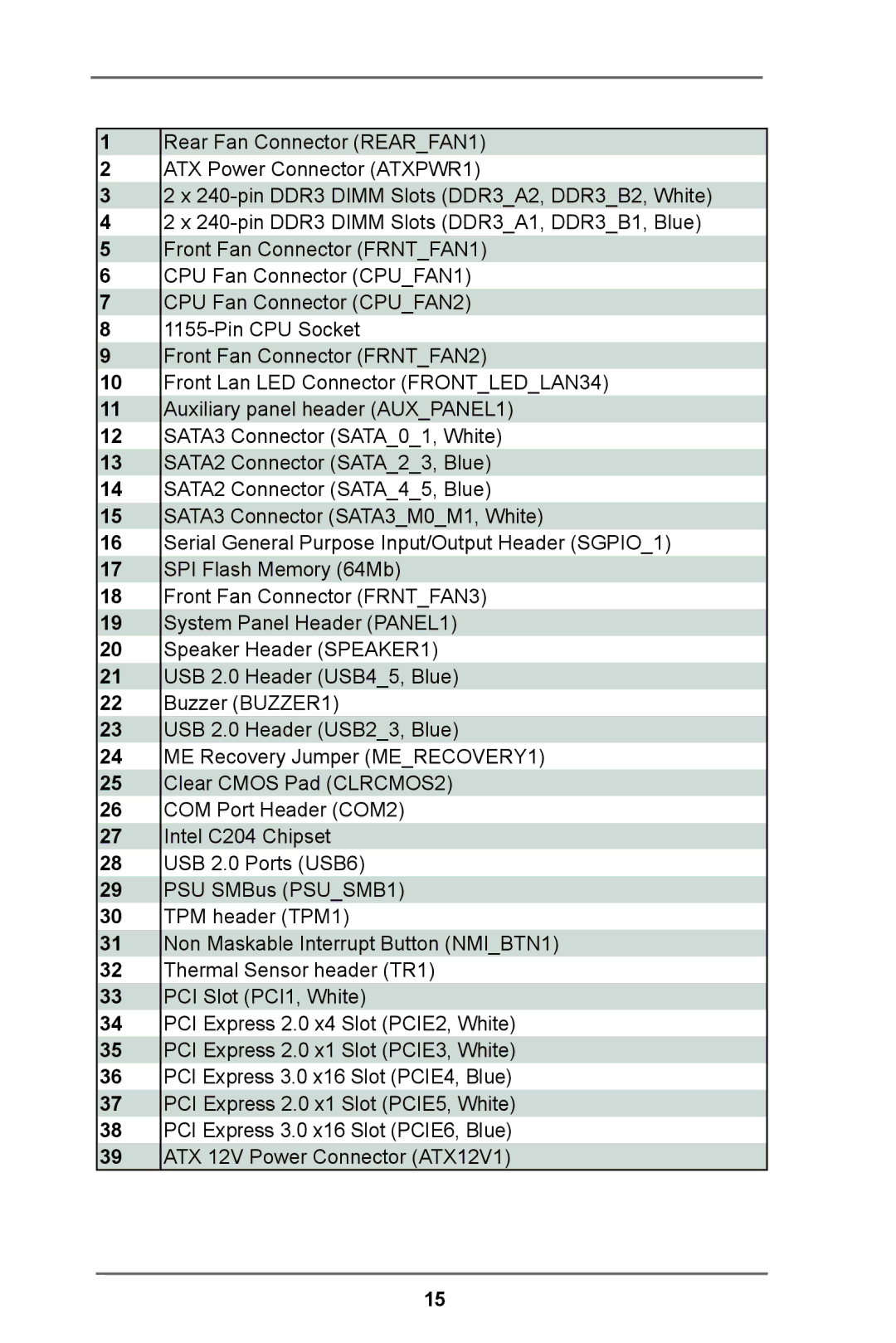E3C204 specifications
The ASRock E3C204 motherboard is an enterprise-grade solution designed for small to medium-sized businesses, featuring an LGA 1151 socket that supports the Intel Xeon E3-1200 v6/v5 and 8th/9th generation Core processors. This motherboard provides a robust platform for various applications, including data centers, file servers, and workstations.One of its standout features is the dual-channel DDR4 memory architecture, supporting up to 64GB of ECC (Error-Correcting Code) memory. This capability ensures enhanced reliability and stability critical for enterprise operations, minimizing the risk of memory errors and data corruption. The E3C204 also boasts four DIMM slots, allowing for flexible memory configurations tailored to specific workload demands.
The ASRock E3C204 comes equipped with multiple expansion slots, including one PCIe 3.0 x16 slot and several PCIe x4 slots, providing ample opportunities for customization and upgradeability. These slots make it easy to integrate high-performance graphics cards, RAID controllers, or other expansion cards, catering to diverse needs such as virtualization or high-performance computing.
For connectivity, the motherboard features eight SATA III ports, enabling users to configure a reliable storage solution. RAID support (0, 1, 5, 10) further enhances data protection and performance by leveraging multiple drives to create redundant arrays. Additionally, the integrated Intel i210 Gigabit Ethernet controller ensures fast and reliable network connectivity, making it suitable for demanding network environments.
ASRock has also prioritized security with the E3C204 by incorporating Trusted Platform Module (TPM) support, offering advanced data encryption and protection features. This is particularly crucial for businesses that handle sensitive information and are focused on compliance with various security standards.
On the technological front, the E3C204 motherboard leverages ASRock's proprietary software and features such as ASRock's Instant Flash for BIOS updates and ASRock Cloud for remote management capabilities. These tools simplify system maintenance and ensure that administrators can keep their environments up-to-date and secure efficiently.
In summary, the ASRock E3C204 motherboard represents a well-rounded and versatile platform for enterprise applications, combining powerful processing capabilities, extensive memory support, flexible expansion options, and strong security features. Ideal for businesses looking for performance, reliability, and value in their server infrastructure, the E3C204 is a compelling choice for modern computing demands.

